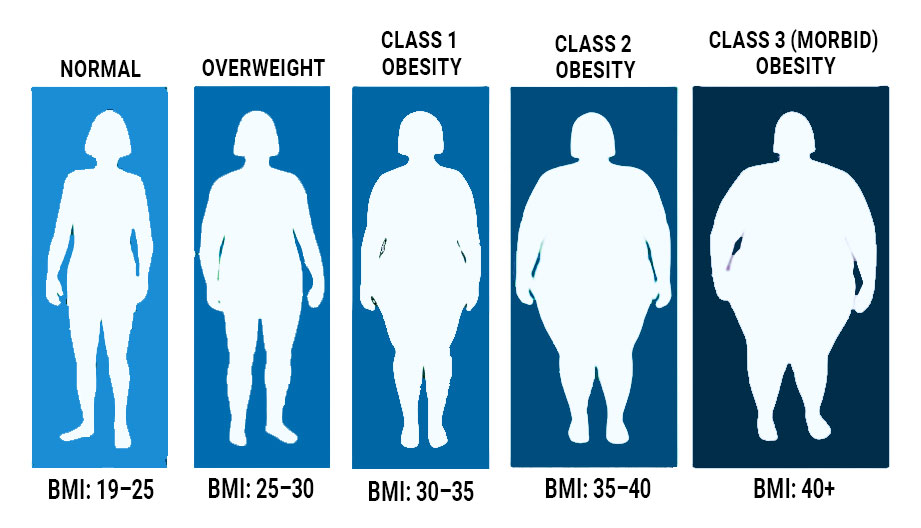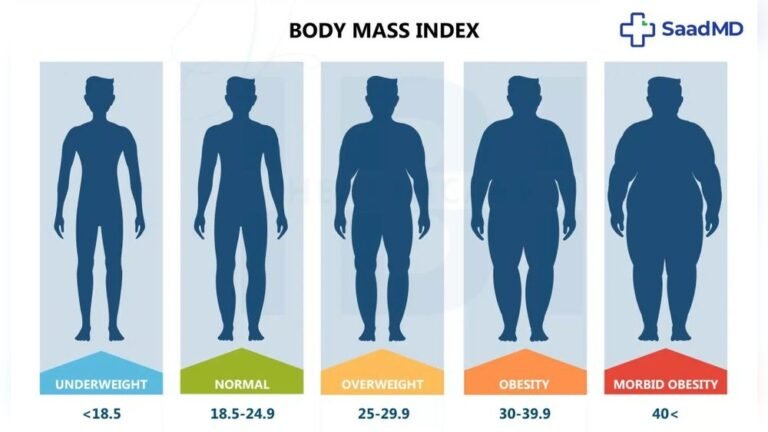Are you struggling to understand what Obesity Class 3 means for your health and daily life? This category, often called severe or morbid obesity, goes beyond just a number on the scale—it can impact your heart, breathing, joints, and even your mental well-being.
Knowing exactly what Class 3 obesity involves is the first step toward taking control of your health and exploring the treatment options that could change your life. Keep reading to discover the risks, the realities, and the effective strategies that can help you manage or overcome this condition.
Your journey to better health starts here.
:max_bytes(150000):strip_icc()/VWH-AmeliaManley-ObesityClasses-4000x2700-ad36a3f6697546f5ac42f59bf5f9be6b.jpg)
Credit: www.verywellhealth.com
Defining Class Iii Obesity
Defining Class III obesity helps understand its impact on health clearly. It represents the highest level of obesity, posing serious health risks. Recognizing this classification guides better treatment and awareness. Knowing the specifics can empower individuals and caregivers to act promptly.
Classification And Bmi Ranges
Class III obesity is defined by body mass index (BMI). BMI measures weight in relation to height. A BMI of 40 or higher falls into Class III obesity. This level is also called severe or extreme obesity. It signals a very high risk for health problems. Medical professionals use this classification to assess patient needs.
Shift From Morbid To Class Iii Terminology
The term “morbid obesity” once described this condition. Now, “Class III obesity” is preferred by health experts. This change reduces stigma and focuses on medical facts. The new term helps emphasize treatment rather than judgment. It encourages respectful communication about obesity and health.
Health Risks Linked To Severe Obesity
Severe obesity, also known as Obesity Class 3, greatly raises the risk of many health problems. It affects the body’s organs and systems in serious ways. Understanding these risks helps highlight why managing weight is vital. Health risks linked to severe obesity span different areas of the body and mind.
Cardiovascular Complications
Severe obesity puts extra strain on the heart. High blood pressure is common and can lead to heart failure. The risk of heart attacks and strokes also increases. Fat build-up in arteries can block blood flow. These complications may cause long-term damage or death.
Breathing And Sleep Disorders
Breathing problems often occur with severe obesity. Sleep apnea is a frequent disorder where breathing stops during sleep. This condition lowers oxygen levels and causes poor sleep quality. Shortness of breath can happen even with light activity. These issues reduce energy and overall health.
Musculoskeletal Issues
Excess weight stresses bones and joints. Arthritis, especially in knees and hips, is common. Back pain also affects many with severe obesity. Movement can become difficult and painful. This limits daily activities and lowers quality of life.
Other Medical Conditions
Severe obesity raises the risk of several diseases. Fatty liver disease and kidney problems often develop. There is a higher chance of gout and some cancers. Blood sugar problems like type 2 diabetes are common. These conditions complicate health and need ongoing care.
Mental And Social Challenges
Severe obesity impacts mental health deeply. Depression and anxiety occur more often. Social bias and discrimination affect self-esteem. Isolation and stress can worsen the condition. Support and treatment are important for mental well-being.
Impact On Life Expectancy
The impact of Obesity Class 3 on life expectancy is significant and concerning. This severe level of obesity greatly raises the risk of many health problems. These health issues can shorten a person’s lifespan.
People with Class 3 obesity often face chronic diseases that affect their daily life. Understanding how these conditions influence life expectancy is key to managing health risks.
Cardiovascular Risks And Life Span
Class 3 obesity increases the chance of heart diseases. High blood pressure and heart attacks are common problems. These conditions can lead to early death if untreated. The heart works harder, leading to failure over time.
Breathing And Sleep Disorders
Severe obesity often causes breathing difficulties. Sleep apnea is a frequent issue and disrupts rest. Poor sleep affects overall health and increases mortality risk. Shortness of breath limits physical activity and worsens health.
Musculoskeletal Complications
Excess weight strains bones and joints. Arthritis and chronic back pain are common. These problems reduce mobility and quality of life. Limited movement can lead to other health problems and lower life expectancy.
Other Health Conditions Linked To Class 3 Obesity
Fatty liver disease, kidney problems, and some cancers appear more often. These illnesses can reduce life span if not managed well. Early detection and treatment improve survival chances.
Mental Health And Social Impact
Obesity Class 3 affects mental health deeply. Depression and anxiety are common among affected individuals. Social bias and discrimination add to stress and isolation. Mental health challenges can worsen physical health outcomes.

Credit: www.drlogy.com
Treatment Approaches
Treating Obesity Class 3 requires a careful and complete approach. A mix of methods helps improve health and reduce risks. Each patient needs a plan made just for them. This plan often combines diet, exercise, mental health support, medicine, and surgery.
Dietary Changes
Changing eating habits plays a big role in treatment. Focus on whole, plant-based foods and lean proteins. Cut back on sugar, salt, and processed foods. Eating smaller portions helps reduce calorie intake. Drinking water instead of sugary drinks supports weight loss. These changes improve health and aid long-term weight control.
Physical Activity
Moving the body is key to managing weight. Start with simple exercises like walking or swimming. Aim for at least 150 minutes of activity each week. Exercise boosts metabolism and burns calories. It also strengthens the heart and muscles. Regular activity improves mood and energy levels too.
Behavioral And Psychological Support
Support for the mind is important in treatment. Therapy can help manage stress and emotional eating. Behavior changes teach new habits and coping skills. Group support or counseling offers motivation and understanding. Mental health care reduces anxiety and depression linked to obesity. This support keeps patients on track with their goals.
Medications
In some cases, doctors may prescribe weight-loss medicines. These drugs help reduce appetite or absorption of fat. Medications work best with diet and exercise. A healthcare provider decides if medicines are safe and suitable. Regular check-ups monitor effects and adjust treatment as needed.
Bariatric Surgery
Surgery is an option for severe obesity cases. It reduces stomach size or changes digestion. This limits food intake and nutrient absorption. Surgery leads to significant and lasting weight loss. Patients need to follow strict diet and lifestyle rules after surgery. Medical teams guide patients before and after the procedure for best results.
Starting Your Treatment Journey
Starting your treatment journey for Obesity Class 3 can feel overwhelming. This is a serious health condition that requires careful planning and support. Taking the first step is important. It involves understanding your options and building a team to help you. A clear plan can guide you toward better health and improved quality of life.
Consulting Healthcare Professionals
Begin by consulting healthcare professionals who specialize in obesity. They can assess your health and discuss treatment options. This may include doctors, dietitians, and therapists. They help create a personalized plan based on your needs. Regular check-ups track your progress and adjust treatments. Open communication with your team is key. Do not hesitate to ask questions or share concerns. Their guidance can make your journey safer and more effective.
Insurance And Coverage Considerations
Understanding insurance coverage is essential before starting treatment. Some treatments may be costly without insurance support. Check your policy to see what services are covered. This may include doctor visits, medications, or surgery. Some plans require prior approval or referrals. Keep all documents and records organized for claims. If coverage is limited, discuss alternatives with your healthcare team. Knowing your insurance details helps avoid unexpected expenses and stress during treatment.

Credit: capitalsurgeons.com
Disability And Class Iii Obesity
Disability and Class III obesity are closely linked due to the severe health effects of this condition. Class III obesity, also called severe obesity, significantly limits physical abilities. This can cause difficulties in daily tasks and reduce quality of life.
People with Class III obesity often face challenges that can qualify as disabilities. These challenges affect mobility, breathing, and overall health. Understanding this link helps to address the medical and social needs of affected individuals.
Physical Limitations In Class Iii Obesity
Severe obesity causes joint pain and muscle weakness. Moving, standing, and walking become hard. Many experience arthritis and back pain. These problems limit independence and require assistive devices or help from others.
Breathing And Cardiovascular Issues
Class III obesity increases risks for breathing problems. Sleep apnea and shortness of breath are common. Heart diseases such as high blood pressure and heart failure also occur. These conditions reduce stamina and physical endurance.
Mental Health And Social Impact
Disability from Class III obesity affects mental health. Depression and anxiety rates are higher in this group. Social stigma and bias lead to isolation. Support and counseling are important to improve mental well-being.
Legal Recognition Of Disability
Class III obesity can meet criteria for disability benefits. Laws vary by region but often recognize severe obesity as disabling. This helps with access to healthcare and workplace accommodations.
Importance Of Treatment And Support
Treatment improves function and reduces disability impact. Dietary changes, exercise, and therapy play key roles. Weight loss surgery may be necessary for some. Professional help creates personalized plans for better health.
Conclusion
Obesity Class 3 is a serious health condition with many risks. It affects the heart, breathing, joints, and mental health. Managing it needs a mix of diet, exercise, and sometimes medicine or surgery. Getting help from a doctor is very important.
Small changes can lead to better health and a longer life. Taking action early makes a big difference. Everyone deserves support and care on this journey.


